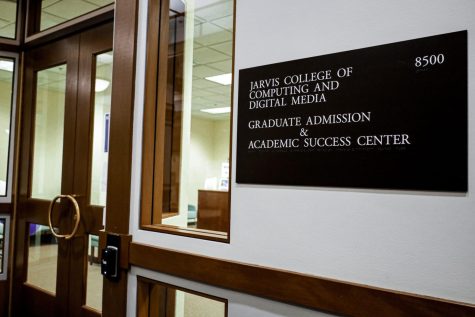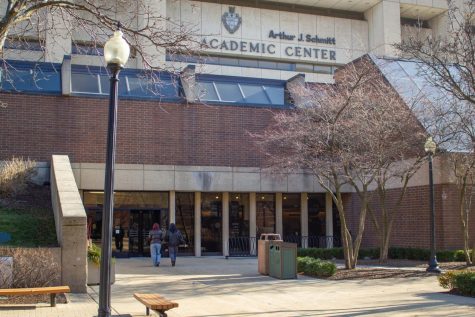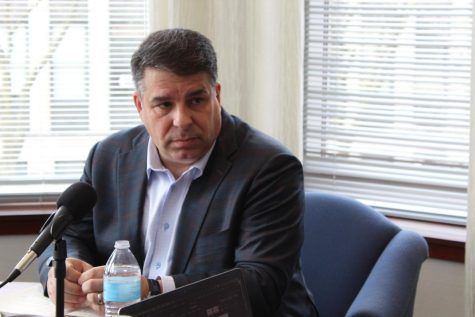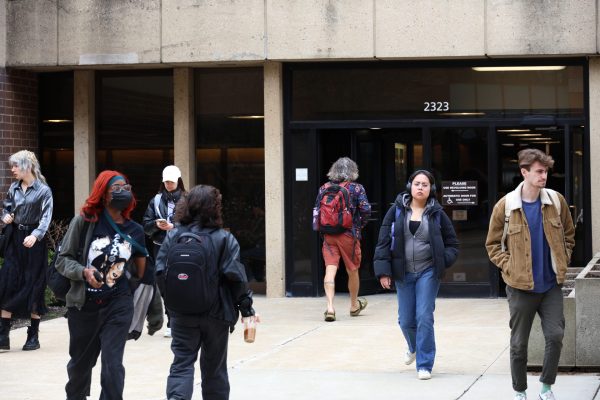Budget crisis vocabulary guide
Here’s a list of terms and definitions to help readers better understand DePaul’s budget gap ongoing budget crisis.
Budget Gap – Easily confused and misattributed as a “deficit”, DePaul is currently facing a budget gap. A gap is the difference between expenses the university plans to operate on and the amount of expected revenue. The current budget gap is $56.5 million dollars.
Budget Deficit – A budget deficit is when the university is already spending more money than they are bringing in or have the money to spend, accruing debt.
SRAC (Strategic Resource Allocation Committee) – SRAC is a committee composed of DePaul faculty, staff and the current SGA president. The committee’s purpose is to propose a budget that continues to achieve the university’s strategic objectives and furthers pursuit of its mission. They discuss broad financial decisions, such as tuition pricing and employee benefits and compensation, and will recommend a comprehensive university budget.
Shared Governance – Shared governance is the concept of collaboration between university administrators, faculty, staff and students in the organization and management of DePaul. Individual committees also can support a shared governance model — such as SRAC’s composition of faculty, staff and a SGA representative.
Faculty Council – Faculty Council is the primary body through which faculty contribute to shared governance at DePaul, composed of faculty members from each college of the university. The current president of Faculty Council is Sonia Soltero, a professor in the College of Education.
Staff Council – Staff Council is the official body through which staff is able to advocate for itself and participate in shared governance of DePaul. As defined in the Staff Council constitution, staff refers to all employees holding positions below the vice-presidential level, excluding students, members of the faculty and deans. The current Staff Council president is Victoria Van Kirk, Associate Director of Housing Operations.
Term Faculty – Term faculty also referred to as instructors or professional lecturers, are full-time, non-tenured/tenure track faculty. Their contracts are renewed on a yearly basis. Generally, term faculty teach courses that require “real-world” or professional experience, not higher level academic degrees. They also manage programs that would be too time intensive for tenure faculty. Six term faculty members’ contracts were not renewed as of April 10.
Adjunct Faculty – Adjunct faculty are instructors hired on a part-time, term-by-term basis — granting them less job security than term or tenure track faculty. These faculty members are not required to conduct research at the institution.
Tenured/Tenure track faculty – Tenure faculty, also known as associate professors, assistant professors or simply professors, are academics with terminal degrees, who participate in research and have increased job security until retirement. While under certain conditions they can be terminated, in most circumstances they have indefinite job security.
Voluntary Separation – Sometimes referred to as a “buy-out,” voluntary separation is a lump-sum payment made to eligible employees who separate through resignation, optional retirement or early retirement. Voluntary separation incentive packages were offered to Depaul staff and administration who are at least 55 years old and have served a minimum of 20 years full-time service, at least 62 years old and have served a minimum of 10 years full time service, or the sum of their age and full time service equals at least 75 years.











